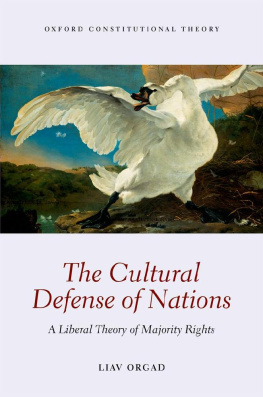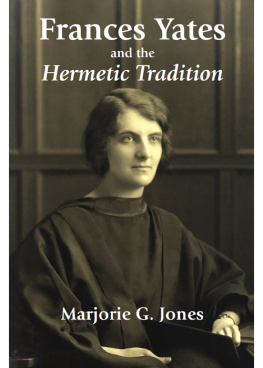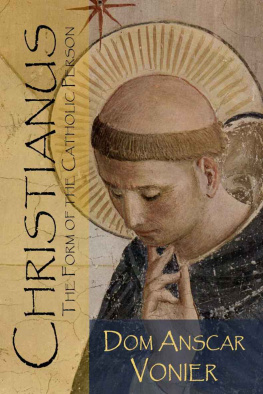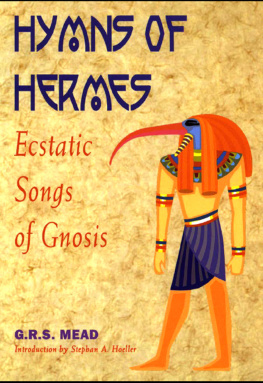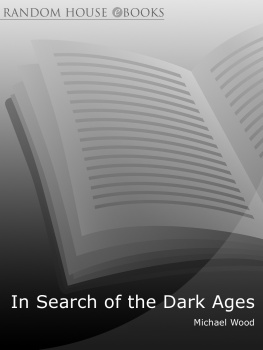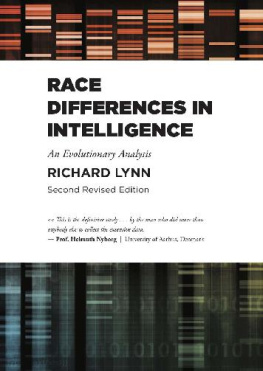OXFORD CONSTITUTIONAL THEORY
Series Editors:
Martin Loughlin, John P. McCormick, and Neil Walker
The Cultural Defense of Nations
OXFORD CONSTITUTIONAL THEORY
Series Editors:
Martin Loughlin, John P. McCormick, and Neil Walker
Oxford Constitutional Theory has rapidly established itself as the primary point of reference for theoretical reflections on the growing interest in constitutions and constitutional law in domestic, regional, and global contexts. The majority of the works published in the series are monographs that advance new understandings of their subject. But the series aims to provide a forum for further innovation in the field by also including well-conceived edited collections that bring a variety of perspectives and disciplinary approaches to bear on specific themes in constitutional thought, and by publishing English translations of leading monographs in constitutional theory that have originally been written in languages other than English.
ALSO AVAILABLE IN THE SERIES
The Cosmopolitan Constitution
Alexander Somek
The Structure of Pluralism
Victor M. Muniz-Fraticelli
Constitutional Courts and Deliberative Democracy
Conrado Hbner Mendes
Fault Lines of Globalization
Legal Order and the Politics of A-Legality
Hans Lindahl
The Cosmopolitan State
H Patrick Glenn
After Public Law
Edited by Cormac Mac Amhlaigh, Claudio Michelon, and Neil Walker
The Three Branches
A Comparative Model of Separation of Powers
Christoph Mllers
The Global Model of Constitutional Rights
Kai Mller
The Twilight of Constitutionalism?
Edited by Petra Dobner and Martin Loughlin
Beyond Constitutionalism
The Pluralist Structure of Postnational Law
Nico Krisch
Constituting Economic and Social Rights
Katharine G. Young
Constitutional Referendums
The Theory and Practice of Republican Deliberation
Stephen Tierney
Constitutional Fragments
Societal Constitutionalism and Globalization
Gunther Teubner
The Cultural Defense of Nations
A Liberal Theory of Majority Rights
Liav Orgad



Great Clarendon Street, Oxford, OX2 6DP, United Kingdom
Oxford University Press is a department of the University of Oxford.
It furthers the Universitys objective of excellence in research, scholarship, and education by publishing worldwide. Oxford is a registered trade mark of Oxford University Press in the UK and in certain other countries
L. Orgad 2015
The moral rights of the author have been asserted
First Edition published in 2015
Impression: 1
All rights reserved. No part of this publication may be reproduced, stored in a retrieval system, or transmitted, in any form or by any means, without the prior permission in writing of Oxford University Press, or as expressly permitted by law, by licence or under terms agreed with the appropriate reprographics rights organization. Enquiries concerning reproduction outside the scope of the above should be sent to the Rights Department, Oxford University Press, at the address above
You must not circulate this work in any other form and you must impose this same condition on any acquirer
Crown copyright material is reproduced under Class Licence
Number C01P0000148 with the permission of OPSI
and the Queens Printer for Scotland
Published in the United States of America by Oxford University Press
198 Madison Avenue, New York, NY 10016, United States of America
British Library Cataloguing in Publication Data
Data available
Library of Congress Control Number: 2015951318
ISBN 9780199668687
eISBN 9780191646447
Links to third party websites are provided by Oxford in good faith and for information only. Oxford disclaims any responsibility for the materials contained in any third party website referenced in this work.
For my father
Eliyahu (Eli) Orgad
19532005
Abstract
The changing patterns of global immigration have initiated a new form of majority nationalism. In recent years, liberal democracies have introduced an increasing number of immigration and naturalization policies that are designed to defend the majority culture. This trend is fed by fears of immigrationsome justified, some paranoidwhich explain the rise of extreme right-wing parties in the West. Liberal theory and human rights law seem to be out of sync with these developments. While they recognize the rights of minority groups to maintain their cultural identity, it is typically assumed that majority groups have neither a need for similar rights nor a moral basis for defending them. The majority culture, so the argument goes, can take care of itself. This book shifts the focus from the prevailing discussion of minority rights and, for the first time, directly addresses the cultural rights of majorities. The findings reveal a troubling trend in liberal democracies, which, ironically, in order to protect liberal values, violate the very same values. The book criticizes this state of affairs and presents a liberal theory of cultural defense that distinguishes between justifiable and unjustifiable attempts by majorities to protect their cultural essentials. It formulates liberal standards by which liberal states can welcome immigrants without fundamentally changing their cultural heritage, forsaking their liberal traditions, or slipping into extreme nationalism.
Acknowledgments
I have always looked forward to writing the acknowledgements part of the book yet now, as I begin work on it, I am at a loss for words realizing how many individuals and institutions assisted me in this endeavor. During the years in which this book took shape, I was privileged to obtain the help of many friends and colleagues who inspired my thinking on issues pertinent to this topic. Ideas grow and develop over time and it is almost impossible to pinpoint all the people whose sage advice and guidance have made the book possible. Acknowledgements, however detailed, are a poor medium by which to express my heartfelt thanks for the support I have received.
Writing this book would have never been possible without the immense help that I have been fortunate enough to receive from friends, colleagues, and students, whose thoughtful discussions and excellent suggestions benefited me at different stages of the research. I owe a great intellectual debt to David Abraham, Shlomo Avineri, Keith Banting, Aharon Barak, Daphne Barak-Erez, Jrgen Bast, Linda Bosniak, Joseph Chamie, Mishael Cheshin, David Coleman, Noah Feldman, Monique Foudraine, Ruth Gavison, Anne Gladitz, Dieter Grimm, Malachi Hacohen, Kay Hailbronner, Dora Kostakopoulou, Shay Lavie, Natan Lerner, Stephen Macedo, Avishai Margalit, Michele Manspeizer, Martha Minow, Noah Pickus, Yoram Rabin, Guy Raveh, Daphn Richemond-Barak, Rahel Rimon, Adam Shinar, Jennifer Shkabatur, Avi Soifer, Daniel Thym, Kyriaki Topidi, Mark Tushnet, Patrick Weil, Alexander Yakobson, and Yaffa Zilbershatz. Offering a mere list does injustice to the hours, and often days, which so many of these people spent listening to my arguments, reviewing drafts, and challenging ideas.
Next page
